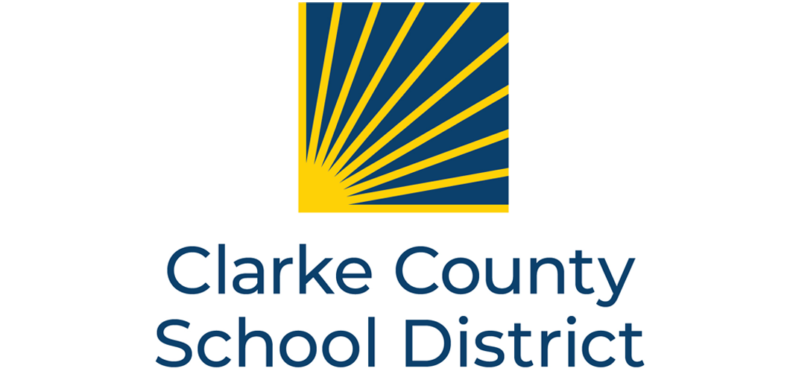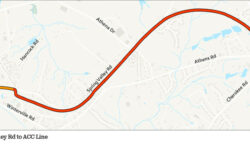The Clarke County Board of Education approved a $214 million budget last month with a property tax rate of 18.8 mills—accepting Superintendent Robbie Hooker’s recommendation over the objections of some homeowners who argued the school district can afford to slash the tax rate.
About a half-dozen speakers at public hearings June 28 and 29 called for CCSD to cut the tax rate by as much as 4 mills, pointing to property values that skyrocketed an average of almost 14% last year and the district’s $52 million in reserves. “It’s our money, and we want it back,” said John Elliott, a former chair of the local Republican Party chapter. The current GOP chair, Gordon Rhoden, also spoke in favor of a tax cut.
“It’s comical you’ve accumulated $20 million over the past two years while we have art teachers begging for supplies and you cut the STEM program for elementary schools,” said Jeb Bradberry, chair of the ACC Board of Assessors.
Board member Tim Denson proposed a much more modest tax cut of 0.2 mills. “My issue is definitely a ballooning fund balance,” which has grown from $36 million to $52 million over the past two years. He argued that it’s likely to grow further because CCSD budgets as if there will be no staff vacancies in the coming year, so the district could afford to fund priorities like raising bus driver and parapro pay while also trimming taxes.
Denson’s motion at the June 29 meeting died for lack of a second, although colleague Linda Davis later said she also supported cutting the millage rate. Hooker’s budget that left the millage rate unchanged from last year passed 5–2, with LaKeisha Gantt, Patricia Yager, Mark Evans, Nicole Hull and Heidi Hensley in favor, Davis and Denson opposed, and Claudia Butts and Mumbi Anderson absent.
Supporters of Hooker’s budget said they empathize with taxpayers who are struggling to pay their bills, but that a large reserve fund is prudent in case of an economic downturn. In the aftermath of the 2008 recession, CCSD and other school districts were forced to lay off employees, furlough teachers and cut instruction days. They also worried about continuing programs funded by the influx of federal COVID-19 funding that is set to expire after next year. “I would love to help the taxpayers, but my job right now is to help the kids,” Hensley said.
It was also a vote of confidence in Hooker, who was hired last year. Board members roundly praised his leadership, and said they believe he will improve reading scores with a new strategic plan. “This man is a genius, and he is going to get us to a good place,” Yager said, “We need to give him time, and we need to give him flexibility to innovate.”
Clarke County’s tax digest—the total assessed value of all taxable property—grew by about a billion dollars last year, to $6.7 billion. Keeping the tax rate at 18.8 mills, or 1.88% of a property’s assessed value, will generate an estimated $121 million in taxes for the school district, up from $109 million in 2022. Rolling back the millage rate to 16.2 mills would have brought in the same amount of revenue as last year. But Hooker’s budget uses the extra revenue to extend the state’s $2,000 raises for teachers to other school employees, and to cover rising costs for health care and retirement funds.
While some speakers pointed to tax cuts at neighboring school districts, Cedar Shoals High School teacher Jesse Evans pushed back against the notion that CCSD spends too much, noting that many Clarke County students come from impoverished families and have to deal with the effects of racism. “Yes, we spend more money per student than surrounding counties, because it’s necessary,” he said.
Gantt, the board president, said CCSD wouldn’t accept sole responsibility for rising housing costs, but she would like to see a holistic approach to tackling gentrification in partnership with the Athens-Clarke County government and local realtors, homebuyers and property owners. “It is close to impossible to live in Athens and to thrive here financially,” she said. And Denson called for CCSD to work with state legislators to raise the homestead exemption for education, like ACC did last year with a referendum exempting the first $25,000 of assessed value from taxation for owner-occupied homes.
The ACC Commission set its tax rate at 12.95 mills, a 0.75-mill cut, when it approved the county’s $166 million budget for fiscal 2024 in June. The commission must also approve the school district’s millage rate, although that is generally a formality.
Court Strikes Down Affirmative Action, Student Loan Forgiveness
The U.S. Supreme Court issued two decisions recently that will have an impact on colleges and college students—one banning affirmative action and another striking down student debt forgiveness.
The court’s six-justice conservative majority ended the practice of giving preference to underprivileged minority students in an effort to compensate for the extra obstacles they face, although they can still factor in a student’s background as revealed in essays. Conservative justices also struck down the Biden administration’s plan to forgive up to $20,000 each in student loans.
Georgia public colleges and universities were already prohibited from using race or ethnicity as a factor in admissions by a 2000 court ruling. But top administrators, including UGA President Jere Morehead, Provost Jack Hu and Vice Provost Michelle Cook, issued a statement on the university’s commitment to diversity, according to The Red & Black student newspaper. “As our nation considers the United States Supreme Court decision, the University of Georgia recommits itself to fostering a welcoming, inclusive environment where each member of our community can freely exchange opinions, learn from those of different backgrounds, and be shaped by the rich array of experiences and viewpoints that promote unity and belonging across our campus,” the statement said.
Despite that stated commitment, UGA student Zeena Mohamed, also communications director for the Georgia Youth Justice Coalition, said she has experienced racism on the 67% white campus.
“Going to the first state-chartered public university in the United States, I’ve had the opportunity to witness firsthand the deeply entrenched racial inequities within higher education,” Mohamed said. “I’ve encountered signs on campuses that refer to the Civil War as ‘The War of Southern Independence,’ slept in dormitories named after segregationists, and attended classes held in buildings erected on historical slave graveyards. To dismiss or ignore the impact of race on our society is not only naive but dangerous to any progress for true equality and justice that is yet to be made. “
While the affirmative action ruling had little effect on UGA, many students will be stung by the student-loan decision. Millions nationwide had already signed up to have their loans forgiven, to the tune of $430 billion in total.
Sen. Raphael Warnock called on Congress to act to provide relief for borrowers and bring down the cost of higher education—something that’s unlikely, considering that Republicans control the House and could filibuster such legislation in the Senate. “This ruling is devastating news for millions of borrowers,” Warnock said in a statement. “The Supreme Court’s decision to usurp the President’s executive authority to provide meaningful debt relief isn’t just bad for the everyday, hardworking Georgians who are being held back financially by crippling debt, but it’s also terrible for our entire economy and sets a dangerous precedent that binds the hands of the elected executive from taking action that reflects the will of the people.”
In addition to the affirmative action ruling, congresswoman and Democratic Party of Georgia chair Nikita Williams also condemned another ruling giving businesses the right to deny services to LGBTQ customers. “An extreme right-wing majority on the Supreme Court rolled back decades of progress toward a more just and equal country by undermining affirmative action and LGBTQ rights,” Williams said in a statement. “With their decisions, the Court said ‘yes’ to rank discrimination against LGBTQ Americans and ‘no’ to fighting deeply entrenched racial inequity in higher education.”
Volunteers Sought for ACC Boards
Athens-Clarke County is soliciting applications for 15 positions on nine advisory boards, including the Planning Commission, which makes recommendations on zoning and development; Athens in Motion, which makes recommendations on bike and pedestrian projects; and the Vision Committee, which makes recommendations on affordable housing and social services grants.
Other vacant positions include seats on the Department of Behavioral Health and Developmental Disabilities Region 2 Advisory Council, the Development Authority of the Unified Government of Athens-Clarke County, the Division of Family and Children Services Board, the Human Relations Commission, and the Joint Development Authority of the Unified Government of Athens-Clarke County and the City of Winterville.
In addition, two positions are open on the Athens Downtown Development Authority. One must be a downtown property owner, and the other a downtown business owner. For more information, go to accgov.com/boards.
Like what you just read? Support Flagpole by making a donation today. Every dollar you give helps fund our ongoing mission to provide Athens with quality, independent journalism.









